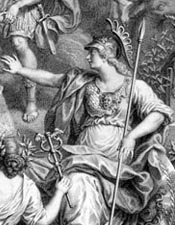Hesiod’s Theogony
, translated by Kelk, Christopher (contributor-contact-email)
The Theogony, attributed to Hesiod, was the first Greek cosmogony - outlining the origins and lineage of the Greek gods. The work begins with the universe in a state of chaos and progresses through a narrative that establishes divine order. A key part of the poem is the “succession myth”, detailing how Cronus overthrew Uranus and was later dethroned by Zeus, who becomes the ultimate ruler of the Gods. The poem also asserts the poet’s authority, equating it to sacred kingship. Although sometimes treated as a Greek mythological encyclopaedia, it is not a definitive source but rather a reflection of dynamic, evolving traditions. The Theogony’s written form was finalized in the 6th century BC and shows influences from Near-Eastern and possibly Mycenaean traditions. It serves as both cosmogony and hymn, reflecting the universalizing intent of early Greek thought.

Kelk, Christopher
Support Open-Access:
Your contribution keeps our classical translations available to all. Every dollar helps support classics education and funds the expansion of our catalogue. Value what we do? Donate now.
File Downloads:
© Copyright, All Rights Reserved. This work may be freely reproduced, stored and transmitted, electronically or otherwise, for any non-commercial purpose. Conditions and Exceptions apply.